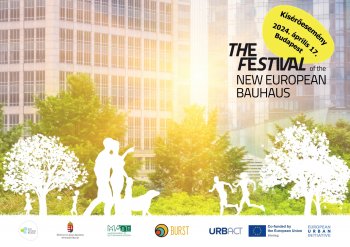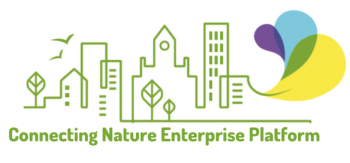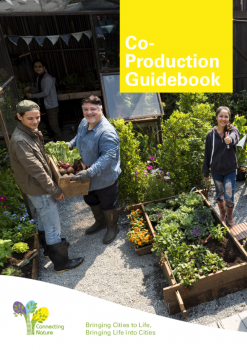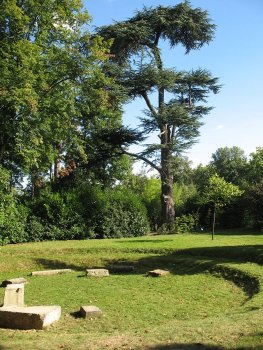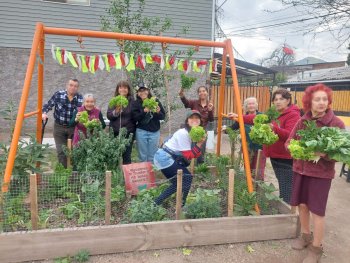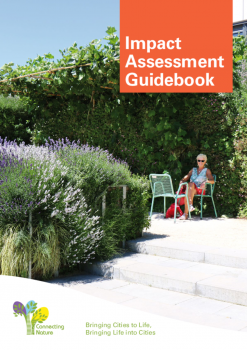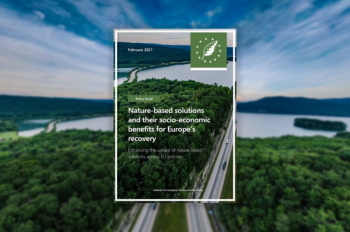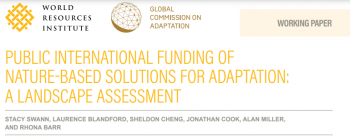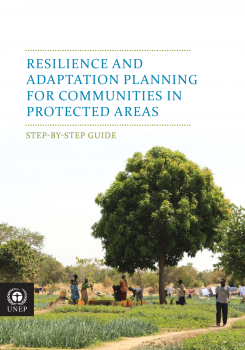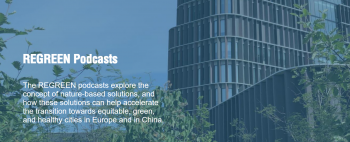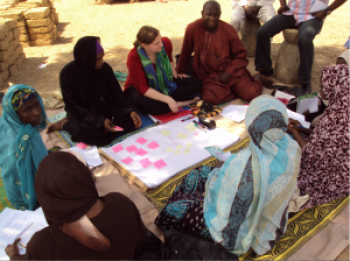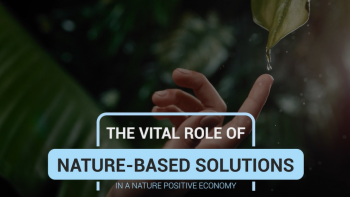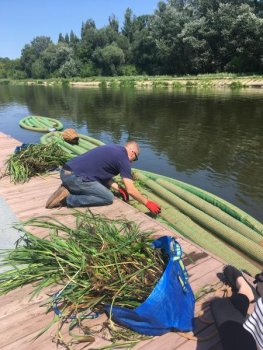Marketplace
ÁLTALÁNOS: Ember- és természetközpontú településfejlesztés - URBACT Konferencia és Workshop
2024. április 17-én került sor az Építési és Közlekedési Minisztérium, a Magyar Agrár- és Élettudományi Egyetem, valamint a TeAM HUb-ot alapító és koordináló BURST Nonprofit Kft. társzervezésében az Új Európai Bauhaus Fesztivál magyarországi kísérőrendezvényére Budapesten. A rendezvényen kiemelt
Green Infrastructure and Public Health
The Green Infrastructure Strategy proposed by the European Commission, promotes the development of Green Infrastructure across the EU delivering economic, social and ecological benefits and contributing to sustainable growth. It guides the implementation of Green Infrastructure at EU,
Connecting Nature Enterprise Platform
The Connecting Nature Enterprise Platform (CNEP) was launched in October 2020 as a direct response to addressing a significant bottleneck where cities and developers seeking to implement NbS voiced their difficulty in finding and sourcing skilled suppliers of NbS. Developed as a marketplace to
- Document
Training for Forest Operators in Intervention Techniques to Enhance Carbon Credit Generation
This empowered them to become self-sufficient in executing specific interventions in the designated GO CO2MARCHE project area and equipped them for future additionality projects in other regions.
CO-PRODUCTION GUIDEBOOK
This Guidebook introduces what co-production is: a novel governance method for developing nature-based solutions where there are a lot of actors (individuals, groups or organisations) involved. Co-production is about collaboration, empowerment, and producing shared results, such as policies and
The environmental health citizen interview tool: towards an inclusive qualitative environmental wellbeing approach in support of planetary health
Nature-based Solutions (NbS) are vital for addressing climate change and biodiversity loss, yet their benefits are often unequally distributed. This study introduces the Environmental Health Citizen Interview Tool, aiming to inclusively capture diverse perspectives on environmental wellbeing using
Conexus Life-Lab Factsheet Series: Co-producing NbS in the “Remodelación Panamericana Norte”
The regeneration of the “Remodelación Panamericana Norte” neighborhood, facilitated by the program “Quiero Mi Barrio,” enabled the improvement of the neighborhood by bringing in Nature-based Solutions (NbS). The accompanying five-step collaborative process supported improving social security and
Impact Assessment Guidebook
This Guidebook presents the Connecting Nature Impact Assessment Framework. This Framework is aimed at supporting cities in developing and successfully implementing robust monitoring and evaluation plans that can deliver systematic and comparable evidence as to NbS effectiveness. This framework
Nature-based solutions and their socio-economic benefits for Europe’s recovery
This briefing provides an overview of the wide range of socio-economic benefits that nature-based solutions can achieve alongside addressing the intertwined climate change and biodiversity loss crises. It highlights the central role these solutions can play in achieving the EU’s 2030 commitments
BIODIVERZITÁS: Élőhely-rekonstrukciók lehetőségei és tapasztalatai, valamint jógyakorlat gyűjtemény Magyarország síkvidéki területeihez kapcsolódóan
Az EU természet-helyreállítási rendeletének életbe lépése miatt időszerű egy, az ökoszisztémák széles körét érintő élőhely-rekonstrukciókkal foglalkozó kiadvány, amely Magyarországra nézve hiánypótló műnek számít. Az élőhely-rekonstrukció segédlet a síkvidéki nyílt élőhelyekkel (gyepekkel, vizes
Policy Brief: EU bioenergy policies at the crossroad
The policy brief summarizes policy messages on bioenergy production in the EU
Supporting climate resilience of communities in and around protected areas
This manual outlines a practical and pragmatic community-based resilience and adaptation planning process, offering step-by-step guidance on initiating the planning process, engaging the community in it and refining and implementing action plans. It is aimed at practitioners from non-governmental
Podcasts on NbS and education
The REGREEN podcasts explore the concept of nature-based solutions, and how these solutions can help accelerate the transition towards equitable, green, and healthy cities in Europe and in China.
Biodiversity and the economic response to COVID-19: Ensuring a green and resilient recovery
This Policy Brief focuses on the vital role of biodiversity for human life and the importance of integrating biodiversity considerations into the recovery from the COVID-19 crisis. The Brief first outlines how biodiversity loss is a key driver of emerging infectious diseases and poses a variety of
An impact evaluation framework to support planning and evaluation of nature-based solutions projects
Nature‐Based Solutions (NbS) are solutions to societal challenges that are inspired and supported by nature. The European Commission requested the EKLIPSE project to help building up an evidence and knowledge base on the benefits and challenges of applying NbS. In response to the request, the
Transdisciplinarity and Knowledge Co-Production
CoKnow Consulting is building capacity for inter- and transdisciplinary processes and supports you and your stakeholders to co-produce knowledge and co-design solutions for sustainability. Together we co-develop the right approaches, e.g.: • Design inter- and transdisciplinary processes tailored
The vital role of Nature-based Solutions in a nature positive economy
The Working Group on the Nature-Based Economy of Taskforce 3 produced this short video to highlight the main recommendations of the EC Expert Publication "The Vital Role of Nature-based Solutions in a Nature-Positive Economy". Watch the video and check out the report, which is a first
Mainstreaming the co-production of Nature-based Solutions in European cities
Co-production processes enable urban planners and policymakers to unlock the potential of Nature-based Solutions (NbS) to address multiple urban challenges simultaneously. The Connecting Nature EU-funded project has worked with ten cities in Europe to foster the large-scale development of NbS while
- ‹ previous
- 38 of 55
- next ›

